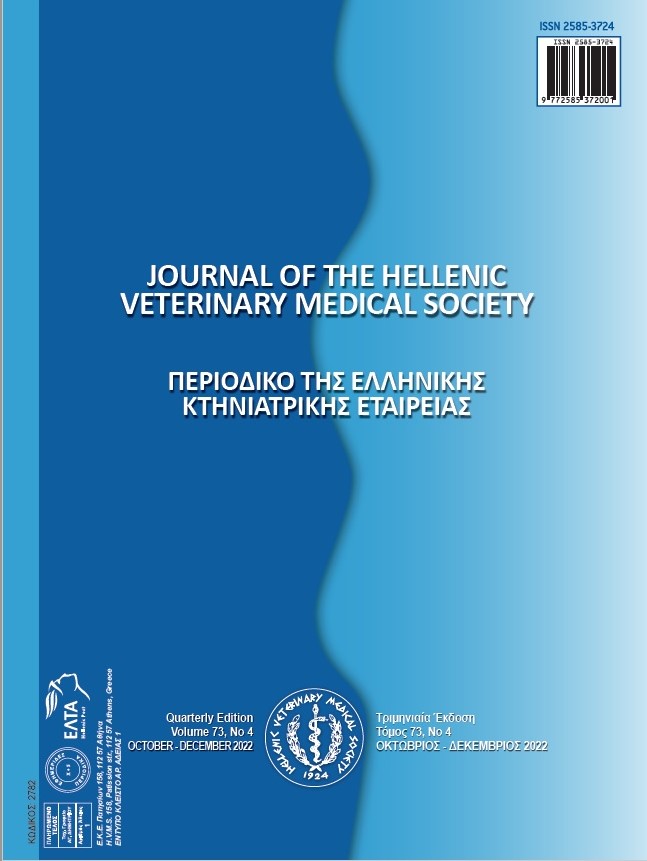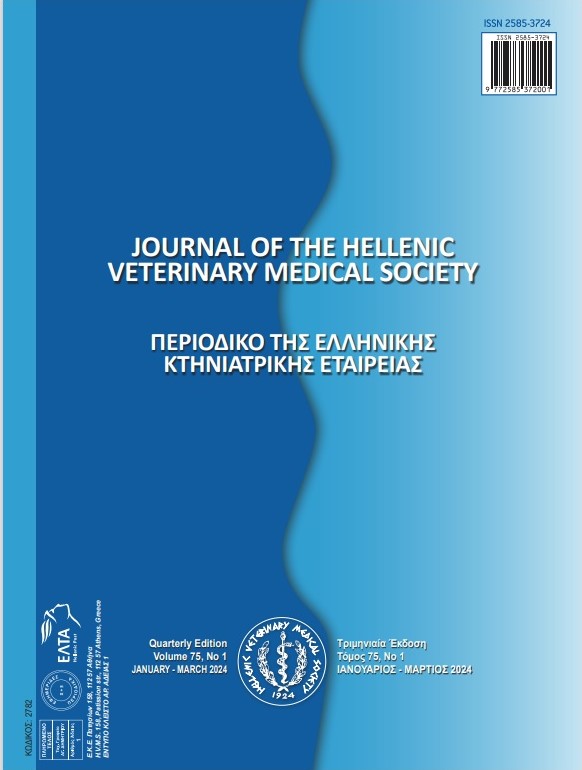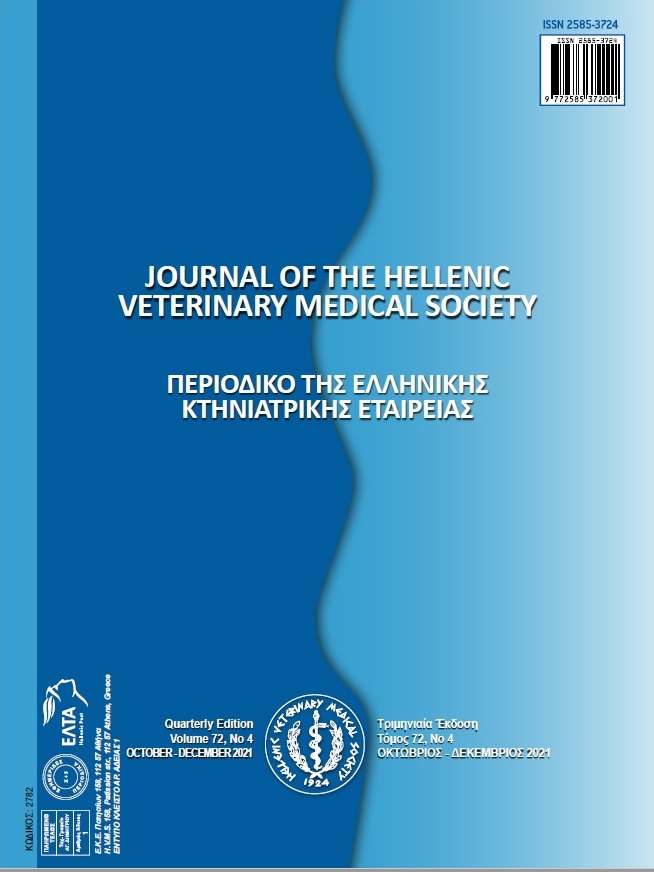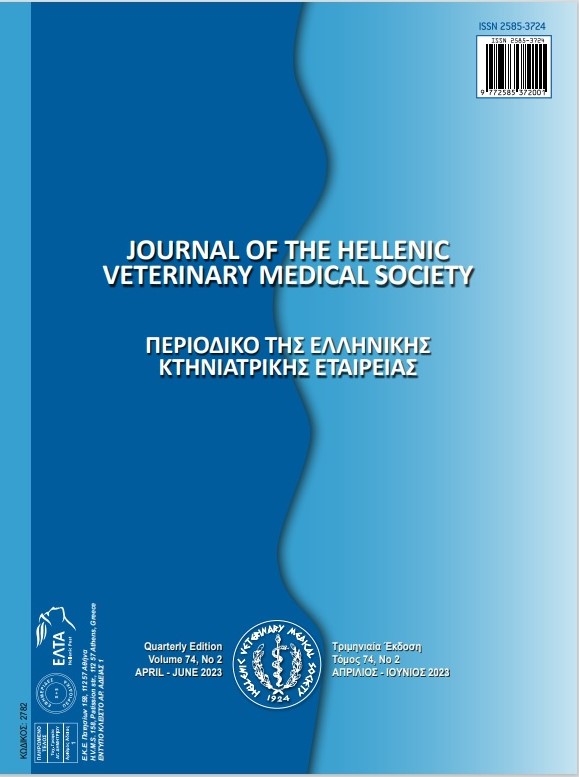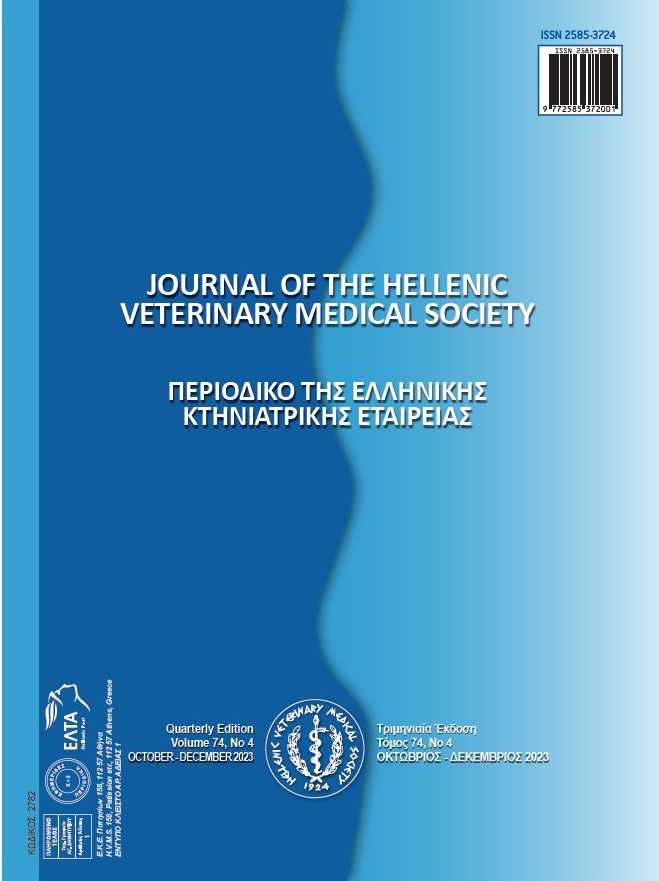Influence of Organic Iron Enriched Diets on Performance, Egg Quality, Blood Haematological and Biochemical Constituents in Quails
Abstract
The current research was carried out to investigate the effect of diets enriched with different levels of organic iron on performance, egg quality, blood haematological parameters, and serum biochemical constituents in laying quails. In the study, 120 female quails at 20 weeks of age were allocated to 5 treatment groups with 6 replicates of 4 quails in each. Experimental diets were formed by adding 0, 50, 100, 150, and 200 mg/kg of iron (iron-glycine) to the diet containing 96 mg/kg of iron. Performance parameters of quails were not affected by the supplementation of organic iron to diet (P>0.05). The supplementation of organic iron affected as quadratic only the eggshell breaking strength among the egg external quality parameters, and it was maximum at 150 mg/kg organic iron addition (P<0.01). Egg yolk a* value, which is one of the egg internal quality parameters, was linearly affected by organic iron addition, but other parameters were not affected (P<0.01). The administration of organic iron to the diet linearly increased the serum iron level (P<0.01), the serum phosphorus level was affected quadratically (P<0.05) and reached a maximum at 150 mg/kg. Among the blood haematology parameters, white blood cell and monocyte counts linearly increased with the addition of organic iron to the diet (P<0.01), but other parameters were not affected. According to the results obtained from current research, it can be said that enrichment of laying quail diets with organic iron up to 150 mg/kg level improved eggshell breaking strength without affecting performance, however, it negatively affected blood parameters by increasing white blood cell and monocyte without changing blood red cell parameters.
Article Details
- Come citare
-
Olgun, O., Gül, E., & Yildiz, A. (2023). Influence of Organic Iron Enriched Diets on Performance, Egg Quality, Blood Haematological and Biochemical Constituents in Quails. Journal of the Hellenic Veterinary Medical Society, 73(4), 4899–4904. https://doi.org/10.12681/jhvms.28232
- Fascicolo
- V. 73 N. 4 (2022)
- Sezione
- Research Articles

Questo lavoro è fornito con la licenza Creative Commons Attribuzione - Non commerciale 4.0 Internazionale.
Authors who publish with this journal agree to the following terms:
· Authors retain copyright and grant the journal right of first publication with the work simultaneously licensed under a Creative Commons Attribution Non-Commercial License that allows others to share the work with an acknowledgement of the work's authorship and initial publication in this journal.
· Authors are able to enter into separate, additional contractual arrangements for the non-exclusive distribution of the journal's published version of the work (e.g. post it to an institutional repository or publish it in a book), with an acknowledgement of its initial publication in this journal.
· Authors are permitted and encouraged to post their work online (preferably in institutional repositories or on their website) prior to and during the submission process, as it can lead to productive exchanges, as well as earlier and greater citation of published work.

